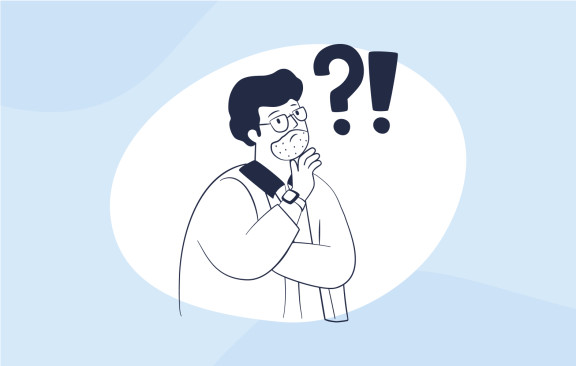Taxes... ugh, right?
Many people hesitate to start a dropshipping business because they're unsure about taxes.
Who pays the sales tax? How does it all work?
Selling online can be super lucrative. The U.S. eCommerce industry is projected to hit $1.38 trillion by 2025:

And Uncle Sam wants his piece of the pie. As Benjamin Franklin said, "In this world, nothing can be said to be certain, except death and taxes."
Taxes are something every business owner has to deal with. That's why a lot of eCommerce stores hire accounting pros, and you might want to do the same.
In this guide, we're going to break down everything you need to know about dropshipping taxes. We'll also cover the legal side of things.
You'll learn what to expect and how to prepare if you're dropshipping in the U.S.
Let's get started!
Definition of dropshipping terms
Before we dive in, let's quickly clarify some terms we'll use in this article:
Dropshipper: That's you, the retailer who sells directly to the consumer.
Supplier: The entity that provides the goods and handles fulfillment.
Fulfillment: The process of delivering goods to the consumer.
Buyer: The end user or consumer.
The reason we are OCD-ing on these terms is that many resources on dropshipping and taxation use "dropshippers" or "dropshipping companies" to refer to what we call suppliers.
That can be a bit confusing if you're the type to check out the sources we cite. Now that we're all on the same page let's move on to the meat of the matter.
Legal considerations for dropshipping
First, let's make sure you're covered on the legal front. Here's what you need to know:
Business registration
You need to decide on your business's legal structure. There are several options, each with pros and cons.
Sole Proprietorship: This business model is the simplest and cheapest way to start. You and the business are the same entity. That means you get all the profits, but also all the risks.
Partnership: This might be a good fit if you're starting your eCommerce store with someone else. Just make sure you have a written partnership agreement.
LLC: This is a private limited company. That means it protects your personal assets from business liabilities. It's a bit more work to set up, but it's worth it if you're serious about growing your store.
Once you've picked your structure, it's time to register your business. You'll need to fill in some paperwork with your state or local government. The requirements differ depending on your location, so check out your state's website for the specifics. The SBA has a helpful guide that covers this process in depth.
Contracts and agreements
You need a documented contract with your suppliers. This isn't the most exciting part of starting a business, but it's essential.
The contract should cover everything from product pricing to shipping, returns, and liability issues. This will help prevent misunderstandings and make sure everyone knows their responsibilities.
Intellectual property
Intellectual property (IP) is all about things like trademarks, copyrights, and patents. You need to make sure you're not selling goods that infringe on someone else's IP.
This can get you into a ton of legal and financial problems. In 2023, The National Intellectual Property Rights Coordination Center seized $2.76 billion worth of merchandise for this reason:

Do your homework and make sure your suppliers have the rights to the products you're selling. Ask for proof, like licensing agreements and patents.
Consumer protection
Consumer protection laws focus on safety and transparency. They require companies to ensure that their products meet safety standards and that customers know exactly what they're getting and what they'll pay.
That includes providing accurate product descriptions and transparent pricing. You also need to honor any warranties or guarantees.
Privacy and data protection
This can have a big impact on conversions and get you into legal trouble if you get it wrong. Make sure your store has a clear privacy policy that explains what data you collect and why.
Only collect the information you really need. In a recent survey, 69% of people said they were highly likely or guaranteed to walk away from a business that required them to provide highly personal information to complete a purchase:

You'll also need to follow regulations like GDPR and CCPA. And make sure your website is secured with an SSL certificate.
Advertising and marketing
You're responsible for making sure your marketing isn't misleading and that you follow advertising laws and regulations. If a customer feels they've been missold a product because of your ads, it can cause legal issues and damage your reputation.
Tax considerations for dropshipping
Tax obligations are about as much fun as a root canal. But we'll get through this as quickly and painlessly as possible. Here's what you need to know to stay on the right side of the taxman.
Sales tax
Sales tax is a small percentage added to the price of most goods and services when you buy them. It's collected by the seller and then passed on to the government.
Now, sales tax laws depend on where your customers are located. Some states require you to collect sales tax, and some don't. It all depends on the state's nexus laws.
State nexus laws
The drop shipment process involves three main players: the buyer, the dropshipper (you), and the supplier. Sometimes, a third-party delivery service gets involved, but we'll stick to the main three to keep it simple.

All parties involved in a transaction have a physical location. For example, a buyer may be located in Florida, you might be in Kansas, and the supplier might be in Pennsylvania.
Each state has its own tax laws, influenced by something called a nexus.
A nexus means having a presence in a state, which makes you subject to that state's tax laws, including sales tax. Some states consider even a single sale as creating a nexus, while others set a threshold for total sales before a nexus is established.
Below is a sample of the sales tax rate for different states. For the complete list and more details, go here.

If you and the buyer are in the same state, it's your job to collect and remit sales tax. If the buyer is in another state, you usually don't.
However, if the supplier has a nexus in the buyer's state, you might need to pay sales tax to the supplier. If neither you nor the supplier have a sales tax nexus in the buyer's state, the tax obligation falls on the buyer.
Make sure you're aware of where you might have nexus and what that means for your dropshipping business.
Tax exemptions
The good news for dropshippers is that they are essentially resellers. And items for resale generally qualify for an exemption to the sales tax.
If the product you're selling is certified to be exempt, you won't have to collect sales tax from your customer or pay taxes on it to the supplier.
However, that opens up another can of worms. To qualify for a certificate of exemption, you must apply and provide documentation acceptable to the state where the certificate will be applied.
Here's an example of a Certificate of Resale for the state of Illinois:

The Multistate Tax Commission has attempted to streamline the process for sales tax exemption certificates. A registered applicant can apply for a resale certificate that is accepted in more than one state.
However, some states still require a reseller (dropshipper) to have a nexus in that state and obtain a state registration number to be eligible for an exemption. In such cases, the dropshipper must collect sales taxes from buyers in that state.
The drop shipment certificate (if valid) has to be sent to the supplier to demonstrate that no sales tax needs to be collected from the dropshipper. Even so, the supplier may choose to reject it based on the applicable tax laws of the state where the supplier has a nexus. In such cases, the supplier may still impose a sales tax on the dropshipper.
You also need to be careful when registering for a resale certificate, as it can trigger tax liabilities in some states. Sometimes, it's safer to collect sales tax from your buyers and file those sales in your tax returns. This can prevent lost sales, double tax payments, or paying the tax liability in the wrong state.
Consider the tax laws in all the states you ship to and have a clear agreement with your supplier on tax issues to ensure everyone is on the same page.
International taxation
Thinking of selling internationally? It can be a great way to expand your customer base and boost sales. But it also comes with tax implications.
You might have to deal with import duties, value-added tax (VAT), or goods and services tax (GST). It all depends on what you're selling and which country the customer is located. Make sure you understand the tax requirements in each country you sell to.
Income tax
You also need to pay income tax. Every sale counts as income, so keep detailed records.
When you start making a lot of sales, it's best to hire a tax professional. They can help you use the right tax treatment for your business structure and location.
Tax deductions
You'll be able to deduct your expenses to reduce the amount of tax you must pay. The IRS website has a full breakdown of the common expenses you can write off. Here's a quick sample of what's included:
- Home office costs
- Office supplies and packaging
- Shipping
- Business Insurance
- Internet
- Advertising
- Education
Keep detailed records of your expenses. This will make it much easier when you file your income taxes.
Tax compliance
Tax laws and regulations change frequently. It's important to stay informed to avoid any surprises. This guide is for informational purposes only and doesn't provide legal, tax, or business advice. We always recommend working with a tax advisor or accountant to ensure compliance.
Keeping your dropshipping business compliant
Taxes can be a headache for dropshippers. The smart move? Get yourself a tax professional to set up a system that works for your business.
Handling a few transactions on your own might be doable, but as your business grows, so do the tax implications. Stay ahead of the game, and make sure you're ready for any tax surprises.
Want to fast-track your dropshipping success?
Check out SaleHoo Educate. It's an extensive, expert-taught resource on growing a dropshipping business from the ground up. It can help you avoid common pitfalls and speed up your journey to financial freedom.
Get started with SaleHoo Educate today!
If you have any questions about what we've covered in this guide or anything else related to eCommerce, our 24/7 customer support team is here to help.












There's no reason to get reseller certificates in states in which you do not have a nexus. They aren't free and they come with their fair share of paperwork, so don't bother with any you aren't required to have. :-)
All the best!
Should they register an LLC in USA or LLC analogy in the country of residency is enough?
It's required mostly to start ordering from a wholesaler for a wholesale price in bulk to the fulfillment center or for ex. to an Amazon warehouse